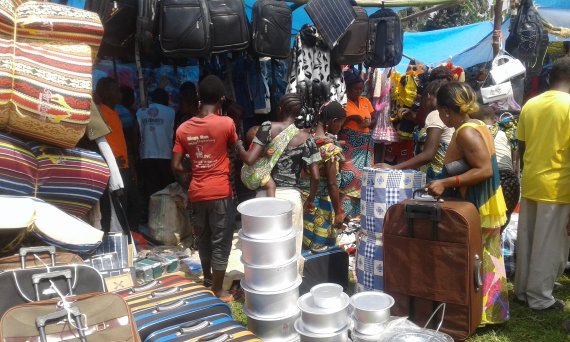Voors and three international colleagues conducted experimental research in the Democratic Republic of the Congo on the effects of emergency aid given to families fleeing the violence in the country. Rather than giving them cash, the aid consisted of vouchers that they could spend on ‘anything other than food’ at a market organized specifically for the purpose.
The announcement of this award coincided with that that of the Nobel Prize for Economics. That prize went to the founders of experimental development economics. ‘Our research is very much along the same lines,’ says Voors. ‘Our group in Wageningen has been inspired by the kind of work they do.’
The situation in Congo has been unstable for decades. Of the country’s 80 million inhabitants, five million are on the run and staying with host families. Disease and mortality among children is a major problem. UNICEF is trying to deal with the worst problems through its Rapid Response to Population Movements aid programme. Voors and his colleagues used that programme as an opportunity to conduct experiments.
The researchers handed vouchers worth 55 to 90 dollars to families who didn’t quite belong to the neediest category. A control group was not given vouchers. The families could buy clothes, mattresses, pots and pans and similar items at a special market. The effect of the aid was measured using questionnaires. ‘The main thing we wanted to know was whether this worked — was it better than doing nothing?’ The answer was a clear ‘yes’.
‘The people are better off in the short term and in the long term,’ says Voors. ‘People who are on the run have nothing and that is an incredibly stressful situation. The voucher system reduces that stress because it lets them buy goods. Plus it didn’t lead to conflicts with families who received nothing either. Social cohesion was not affected. This study shows that giving aid immediately has a positive impact. We expect later aid programmes will have more effect as a result.’ The experiment by Voors and colleagues is one of 10 studies nominated for the competition by the UNICEF Office of Research-Innocenti. Three studies were selected as winners.

 Photo: Douglas Bashonga
Photo: Douglas Bashonga